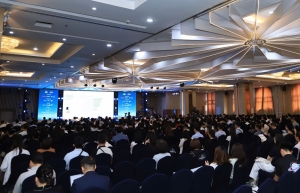AI leading to significant hikes in e-commerce revenue
According to a report on AI awareness and adoption trends among online sellers in Southeast Asia, released by Lazada in April, Vietnam and Indonesia are leading the region in AI application in e-commerce with a rate of 42 per cent.
 |
| AI leading to significant hikes in e-commerce revenue, Source: freepik |
The report indicates that the majority of online retailers in Vietnam are in the early stages of integrating AI into their businesses. While the group of online retailers proficient in AI accounts for 22 per cent, lower than the region’s 24 per cent, the proportion of retailers beginning to incorporate this technology into their operations is 64 per cent, which is 10 per cent higher than ASEAN.
“Although most retailers understand the transformative potential of AI, many of them are still stumbling on the path from understanding to action,” said James Dong, CEO of Lazada Group. “We see generative AI as a pivotal element in our long-term, customer-centric strategy to elevate the shopping experience. I firmly believe that GenAI will not only revolutionise e-commerce but completely overhaul how we shop, sell, and engage.”
Lai Viet Anh, deputy director of the E-commerce and Digital Economy Agency under the Ministry of Industry and Trade, said the whole world is witnessing rapid development of AI.
“AI is being applied to personalising user experiences, automating operations, supporting customer care, analysing consumer data, and forecasting market trends. This technology has helped businesses save time, costs, and skyrocket efficiency,” Anh said.
According to the E-Commerce and Digital Economy Agency, the e-commerce market size in 2025 could surpass $25 billion, with a growth rate of nearly 20 per cent. In Vietnam, 63 per cent of the population have the habit of online shopping, with an average value of around $400 per person annually. Notably, 62 per cent of consumers watch livestreams to make purchasing decisions.
Nguyen Minh Khoi, the chief technical officer of Sapo Technology Ltd., said that consumers nowadays are no longer just attracted by deep discount schemes as before but are starting to pay more attention to experience, real value, and transparency of brands. AI will be the tool to help businesses overcome these barriers, from optimising sales processes to increasing conversion rates.
“When customers have shopping needs, they often search, message for product information, and make decisions rapidly. If the sellers do not respond promptly, the opportunity will be lost immediately,” Khoi said. “In that context, AI solutions can help automate responses and enhance deal closure rates, thereby significantly improving business efficiency.”
According to Nguyen Ngoc Dung, chairman of the Vietnam E-Commerce Association (VECOM), the five trends leading e-commerce in Vietnam are AI chatbots, apps, multichannel, customer experience, and direct-to-customer. This indicates the deepening intervention of AI in the operation and development of e-commerce platforms, creating an increasingly popular trend in the e-commerce market.
“AI is no longer a future trend but has become an essential part of the modern e-commerce ecosystem,” Dung remarked. “The application of AI in e-commerce still has some limitations. This may stem from incomplete access to AI tools and applications that do not fully meet specific business requirements.”
Young Liu, head of Vietnam Business at Alibaba.com, said that the platform is actively incorporating cutting-edge technologies to enhance the user experience for small- and medium-sized enterprises. Since early 2024, its AI-powered Smart Assistant has been provided free of charge to support Vietnamese enterprises, helping streamline operations, save time and resources.
“This tool assists with automating responses to buyer inquiries, personalising recommendations, editing and creating product videos and photos, and providing deep market analysis insights and suggestions. It helps sellers optimise listings, improve sales strategies, and build stronger buyer relationships,” Liu noted.
An Luong, head of AI and Data Science at Masan Group, stated that AI helps increase conversion rates by up to 20 per cent in many e-commerce campaigns, but also carries the risk of personal data misuse as 56 per cent of users still have concerns about data security when using AI.
“However, businesses and sellers on e-commerce platforms should not fear that AI will replace humans but should see AI as a business support tool in tasks such as planning, operating systems, and supporting advertising ideas,” Luong said.
Vietnam is currently among the top three e-commerce markets in Southeast Asia, following Indonesia and Thailand, according to VECOM. The market is projected to grow at a compound annual growth rate of 28 per cent between now and 2033, reaching approximately $63 billion by 2030, according to consulting firm Bain & Company.
 | New legal impacts on Vietnam’s e-commerce market Vietnam’s e-commerce market is experiencing changes driven by various factors. Tran Van Trong, secretary general of the Vietnam E-commerce Association, spoke with VIR’s Bich Thuy about the impact of legal changes and market competition. |
 | E-commerce giants raise commission fees E-commerce platforms are increasing commission fees, but any adjustments may undermine seller confidence without fair and transparent policies. |
 | Vietnam Online Business Forum explores the transformative impact of AI The ninth Vietnam Online Business Forum took place in Hanoi on April 25, offering valuable information and opportunities for networking, exchanging ideas, and providing an overview of the e-commerce industry in Vietnam. |
What the stars mean:
★ Poor ★ ★ Promising ★★★ Good ★★★★ Very good ★★★★★ Exceptional
Related Contents
Latest News
More News
- Masan Consumer names new deputy CEO to drive foods and beverages growth (February 23, 2026 | 20:52)
- Myriad risks ahead, but ones Vietnam can confront (February 20, 2026 | 15:02)
- Vietnam making the leap into AI and semiconductors (February 20, 2026 | 09:37)
- Funding must be activated for semiconductor success (February 20, 2026 | 09:20)
- Resilience as new benchmark for smarter infrastructure (February 19, 2026 | 20:35)
- A golden time to shine within ASEAN (February 19, 2026 | 20:22)
- Vietnam’s pivotal year for advancing sustainability (February 19, 2026 | 08:44)
- Strengthening the core role of industry and trade (February 19, 2026 | 08:35)
- Future orientations for healthcare improvements (February 19, 2026 | 08:29)
- Infrastructure orientations suitable for a new chapter (February 19, 2026 | 08:15)

 Tag:
Tag:


















 Mobile Version
Mobile Version